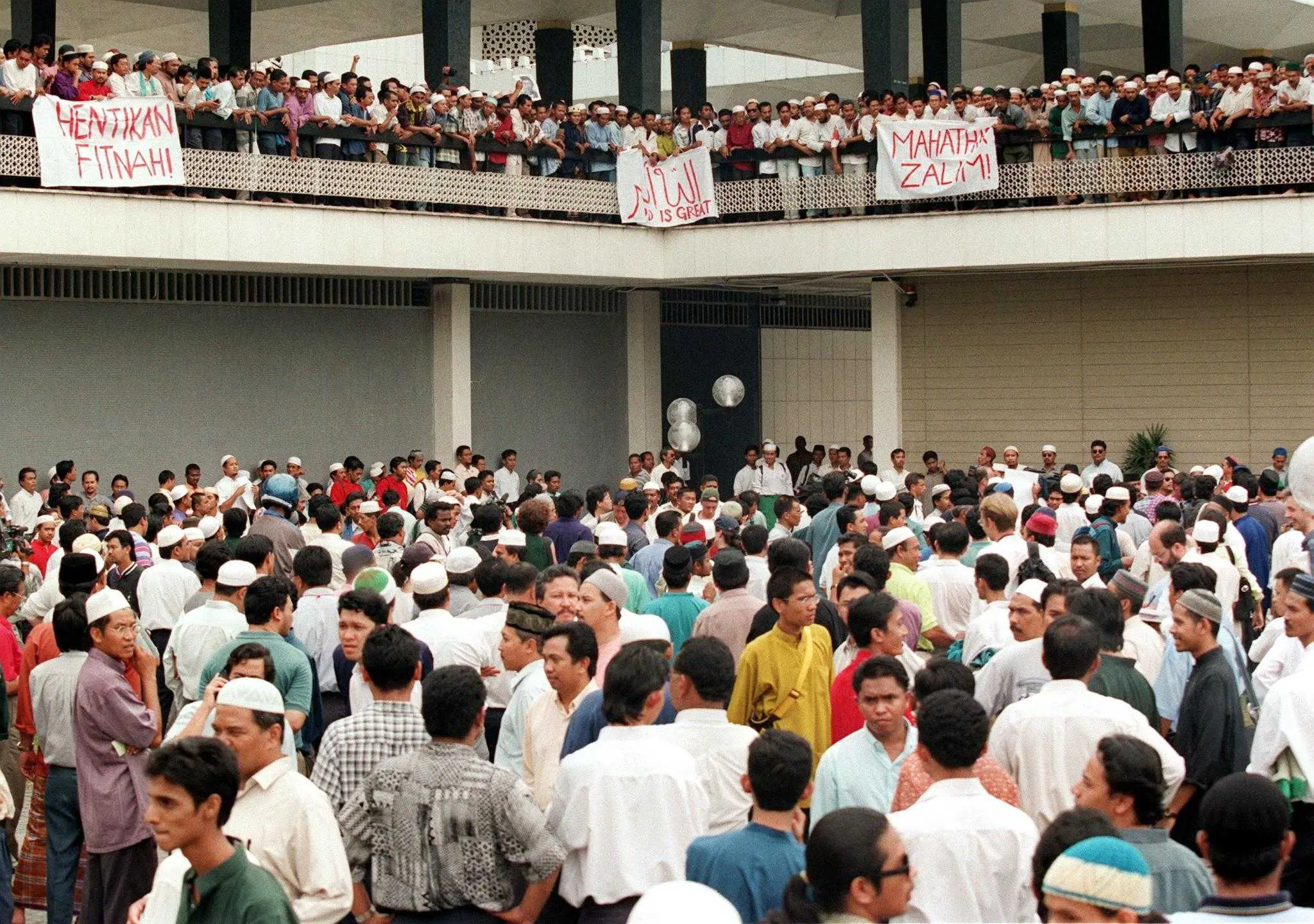Remember the force behind 'reformasi', PH told after remarks on education, income
The youth of today as well as the 1990s who attended the original reformasi protests in Kuala Lumpur voice disappointment with the comments.
Just In
Rahimi Abd Kadir recalls how, more than two decades ago, he and his friends made their way to the capital city from their village in Kedah to attend a reformasi protest – the slogan adopted by Anwar Ibrahim after he was sacked from the government in 1998.
They were among thousands of youth who found themselves out of a job amid the economic downturn caused by the Asian financial crisis.
Rahimi lost his job as a factory operator in Penang while one of his friends was forced to shut down his motorcycle workshop.
The third of them meanwhile could only find odd jobs around his village in Sik, Kedah.
With no money to spend and nothing to buy, they spent their time chatting in front of each other's houses, talking about the political situation.
It was September 1998, and Anwar had just been sacked from his position as deputy prime minister by Dr Mahathir Mohamad on charges of sexual misconduct.
The move sparked one of Malaysia's biggest political crises, with thousands turning out in mass protests in Kuala Lumpur, patterned after the gatherings in Indonesia a year earlier which succeeded in toppling the Suharto regime.
Rahimi still remembers how the youth at the time would talk of nothing else, eagerly following every development communicated through the newspapers, television screens and radio programmes.
Then came the day when they decided to go to Kuala Lumpur themselves and join in the protests at Dataran Merdeka.
"Ask anyone who went to the gathering of Sept 20," Rahimi said in a recent interview with MalaysiaNow.
"None of the youth there had any money. But they were the ones who supported him until he finally became the prime minister," he added, referring to Anwar's appointment to the top office in November last year.
Education and income
With memories of the 1998 protests still clear in his mind, Rahimi is disappointed in PKR leader Saifuddin Nasution Ismail who recently said that the youth who supported Perikatan Nasional (PN) at the November election had low levels of education and income.
"Back then, their support was from young people with no money, too," he said.
Saifuddin had cited a study conducted by PH after the Nov 19, 2022 polls, which he said found that young voters with a stable income and higher education were more likely to support Anwar's Pakatan Harapan (PH) coalition.
"We found that the higher their education and more stable their income, the more likely they were to vote for us," he said.
"Meanwhile those with lower education levels and an uncertain income who ride on motorcycles here and there voted for PN."
Rahimi said many leaders including Anwar and Saifuddin were in their current positions due to the support of such youth.
"When they won the 14th general election, that was partly due to the youth as well," he said.
"Why not say the same thing?"
Twenty-three-year-old Hasriq, who voted in Putrajaya for the first time at the last election, criticised what he described as the "toxic" censure by some politicians of young voters who were not aligned with the government.
"Before the election, they praised the youth but after the election, they blamed us," he said.
Alise from Kota Kinabalu, Sabah, meanwhile said that the youth might lose their patience if politicians continued blaming them for their losses.
Alise, who also voted for the first time last November, said she was not inclined to cast her ballot at all and had only done so because she was automatically registered.
"Politicians need to remember that the youth who made up Undi 18 and the institution of reformasi can't be ordered around," she said.
She also questioned attempts to link youth support for PN with online content including TikTok videos.
"It's not the fault of the youth or TikTok," she said.
TikTok recently dismissed claims on the perceived role of its video content during the general election last year, as well as accusations that its moderators were politically biased in pushing videos critical of the current government.
It acknowledged promoting some videos to introduce celebrities and emerging creators, but said no political ads were allowed on the platform, according to the rules set for account owners from the government, politicians and political parties.
Subscribe to our newsletter
To be updated with all the latest news and analyses daily.
